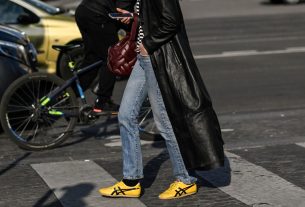The first book I received as a gift was a children’s book about a rabbit, it was in German. I loved it and have devoured book after book ever since. Thanks to a lot of reading (and watching television), my German skills managed to keep up with those of my German classmates throughout elementary school. On the last day of elementary school my principal presented me with an honorary award for my excellent grade in German, she presented it to me in front of the whole school with the words: “Such an extraordinary achievement, even if you are not German! Wow! ” My cheeks burned, I didn’t know whether from pride or shame.
In high school, however, it became clear what I felt about my native language: shame. I couldn’t stand anyone asking me to say something Turkish because of my name; or when someone in class shouted Turkish swear words for fun or my German teachers repeatedly pointed out how great my lyrics were – “despite my migration history”. For a long time I let my Turkish language atrophy and I only spoke Turkish with my mother (my brothers also only speak German). I wrote in German, I thought in German.
But what does it actually mean to reject one’s mother tongue? Looking back, I feel like I denied my origins and my identity. Because whether I wanted it or not, the Turkish language is part of me as a native language.
Majdalin Hilmi: “If you lose your language, you lose your identity”
Cognitive and linguistic scientists now confirm my mother’s decision to raise me as a child in Turkish: they advise migrants to teach their children their native language first, rather than the “new” language. Gila Hoppenstedt of the German Institute for Immersive Learning (GIFIL) justifies this by saying that the native language is the key to the second language. The first language constitutes the cognitive prerequisites for understanding and processing content. For this reason he proposes to employ several educators who speak German and the main foreign languages, such as Turkish, in nursery schools with many migrant children.
In addition to the ability to speak, the mother tongue also shapes much of our cultural identity, allows us to express ourselves with words and to better understand our family’s life and decisions. It is nothing new that Migra children very often doubt themselves throughout their lives, feel torn between different cultures and take a long time to develop a solid identity that they are happy with. After all, it is not uncommon for our family to present us with values and ideals that are different from those that our friends have in the “new” and “foreign” environment. Language contributes largely to this development. “If you lose your language, you lose your identity,” Majdalin Hilmi said in a 2016 DRadio Wissen report.
How I found enjoyment and interest in my native language again
“You don’t learn Turkish. You forget Turkish,” writes Kübra Gümüşay in his book “Language and being“. I forgot a lot of Turkish in my life, but I learned about it just in time. From the age of 20 my attitude changed: I no longer wanted to deny this part of myself, but rather recognize, learn and train it. Because the language plays an important role. Part of this is why I decided to improve my Turkish skills. I discovered Turkish music, learned to love Turkish series, and took a Turkish course during university. Fun fact: actually I wasn’t the only Turkish person in this course.
I still struggle to read and write Turkish, but I now speak it fluently. When I meet other people of Turkish origin, we feel connected through our shared language. For me Turkish is now more than the language of my parents, it is a different understanding of the world, a language that contains Ottoman Arabic with “aşk” (love), but which also contains the French “defile” (fashion show , Parata) and uses the Greek “bacanak” (brother of the bride, friend) – I also learned this in Turkish class. The most important thing for me is: I am no longer ashamed of Turkish. If someone asks me if I speak Turkish, I say yes with a smile and am happy to say something in my native language.
More topics on VOGUE.de




